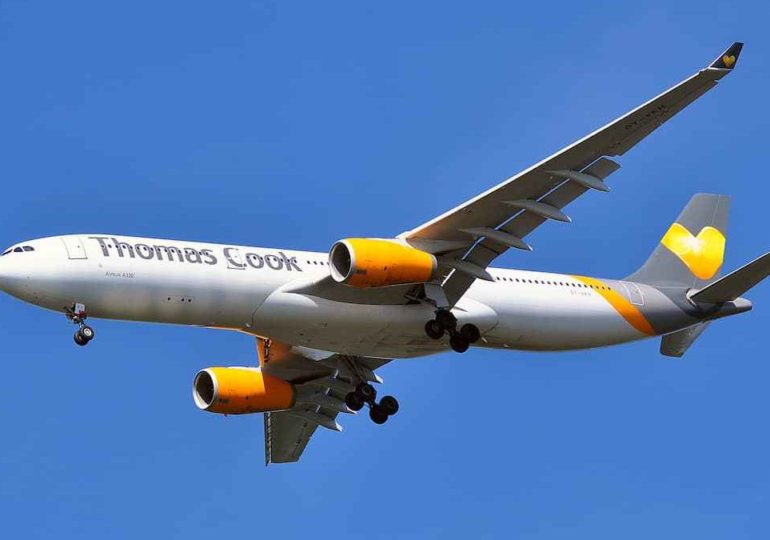What Happened to Thomas Cook All Of A Sudden?
Thomas Cook was one of the leading travel agents in the UK, boasting one of the best services for holiday makers. One thing we know is that the journey for this travel firm has now come to an end as the company has declared bankruptcy, leaving a lot of people stranded at different locations. What happened to Thomas Cook, you might ask?
The journey for the prestigious travel firm has been a long one since its formation in Leicestershire during the Victorian era. Moving up the ranks for 178 years, this small travel firm became a huge travel group operating in 15 countries with over 20 million trusted customers and sales of £9bn yearly.
The travel world had to develop from running simple trips because people wanted more; running a travel business meant that the company had to change at the same pace as the needs of the customers. However, many factors led to the demise of Thomas Cook, such as stiff competition from online travel agents, weather issues, and low-cost airlines.
Why did Thomas Cook Collapse?
The development of technology today has made it easy for enterprises to reach every part of the world. However, Thomas Cook was unable to keep up with the online competition due to a debt of about £1.7 billion. With this debt building up for about ten years due to a couple of poor deals, the sale of three million holidays a year was the only way to cover the interest payments alone.
This struggle continued as the customer base of the company declined; this was because they found it difficult to break into the market of attracting new tourists and some of the old clients had ‘jumped ship’. In 2016, matters became worse when Thomas Cook was hit by the coup attempt in Turkey, which was one of its top destinations, and in 2018, the Europe-wide heatwave, which prevented tourists from going overseas.
Things worsened as Thomas Cook needed an extra £200 million to cover the £900 million package the company had already agreed to; this would have helped the firm get through the winter months when less cash would be paid by customers. It would have also helped to pay for hotels for the summer.
However, this rescue deal never saw the light of day as it was ruined by the request for the additional £200 million. Many loan requests to try and thrash out a last-minute deal seemed unlikely as many lenders and creditors did not see a reason to salvage the company.
Here are some of the significant factors that led to the collapse of Thomas Cook:
The Global Use of the Internet
The internet has made it easy for everyone to be anywhere at any time. The travel booking business today has made use of the internet for bookings more than the traditional methods. Although Thomas Cook announced a deal with Expedia in 2017, the business did not make a move to utilise the internet. The traditional use of telephone assistance and physical stores was still the method of operations having over 600 high street stores in the United Kingdom.
The world has gone digital with more developments still on the way; to maintain relevance, companies must keep up with the trends. Thomas Cook’s downfall was a sign that no matter how relevant a company is, it is important to keep tabs on new developments and look for ways to utilise them.
Reduced Interest in Package Tours
Over the past ten years, booking holdings and the use of Expedia have become the dominant method of holiday planning. However, Thomas Cook did not do anything about this shift in customer direction. The package holiday market lost a lot of relevance as it became easier for consumers to choose what they want for a particular holiday at reasonable prices.
With the internet, many clients now have the capacity to research and plan their holidays themselves, and with new competition helping them research online, we have to say that the collapse of Thomas Cook was inevitable,
Package tours are seasonal and always subject to limited use, especially when the target location is facing some sort of crisis. When planned trips are affected by many unexpected circumstances, it is likely that cash flow, as well as other aspects of operations, would be significantly affected.
Expensive Airline Operations
Thomas Cook moved into the airline business in the early 2000s, when it absorbed some airlines for its own use. Thomas Cook’s full airline operations began in 2003, starting with 34 planes in the fleet covering a total of 82 destinations at that time. This, according to experts, was the beginning of uncertain times because it was difficult enough to operate a travel agency, let alone operate an airline alongside without online presence. Both of these businesses were complicated businesses to handle even separately; when combined, it was much more challenging.
Expensive airline operation was a factor of what happened to Thomas Cook; the company lacked the flexibility that other airlines had, which left consumers with a restricted flight schedule and the same operational costs as other airlines who made more money.
No-deal Brexit
As we know, the news of the Brexit process has led to many uncertainties in the minds of United Kingdom citizens. This unrest has caused many citizens to delay flight plans in a bid to understand how things will pan out. Those who had to travel simply preferred to make use of low-cost airlines such as EasyJet.
The end game here is that Thomas Cook spent more money trying to keep the business afloat and gained practically nothing during times of crisis, such as the no-deal Brexit. Thomas Cook’s business model in which it tried to combine a travel agency with an airline really did not go as planned. Both business models work as an entity, but in unison, not so much. What happened to Thomas Cook here is a sign that to combine and handle two business models such as this, a lot of planning and backup funds are required.
What Happens to Tourists Now?
Following what happened to Thomas Cook, the British government asked that a repatriation programme was carried out over the course of two weeks by the UK Aviation Authority from from 30th September to the 6th October to bring Thomas Cook clients back to the UK.
This was a situation of high importance, and the Civil Aviation Authority promised to do their best to bring every stranded tourist home within the due date using a unique website www.thomascook.caa.co.uk on which every affected tourist found their name as well as their repatriation flight schedules.
For affected passengers not flying to Britain, different arrangements were put in place.
Impact on the Industry
The impact of what happened to Thomas Cook has already been felt with British online travel group On The Beach claiming that the cost of helping Thomas Cook customers get back home from resorts would really affect the companies that made the alternative arrangements; Webjet Ltd an Australian Travel Group stated that the liquidation has cost them about £24 million.
Major rivals such as TUI would definitely benefit from what happened to Thomas Cook with a boost in sales and a surge in share prices of more than 11% in early Monday trading.
We will keep you informed on the situation of things with the collapse of Thomas Cook, especially with regards to cushioning the effects on all affected parties. The firm’s collapse is a big shock to the aviation and holiday resort booking industry. Although the facts pointing to the demise of Thomas Cook are overwhelming, the company will still be missed.
One thing we must point out is the fact that the initial success of Thomas Cook was followed with a mission to try to up their game, which brought about the implementation of the aviation aspect of the company. However, Thomas Cook’s inability to keep up with the latest trends, especially the use of the internet, was the beginning of the end for them.
Nothing can be worse than building an empire from the ground only to watch it collapse right before your eyes after many years of success. Many people have suffered due to the fall of this empire, with staff, customers, and partners suffering the consequences.
Please leave a comment below to tell us what you think about what happened to Thomas Cook.











